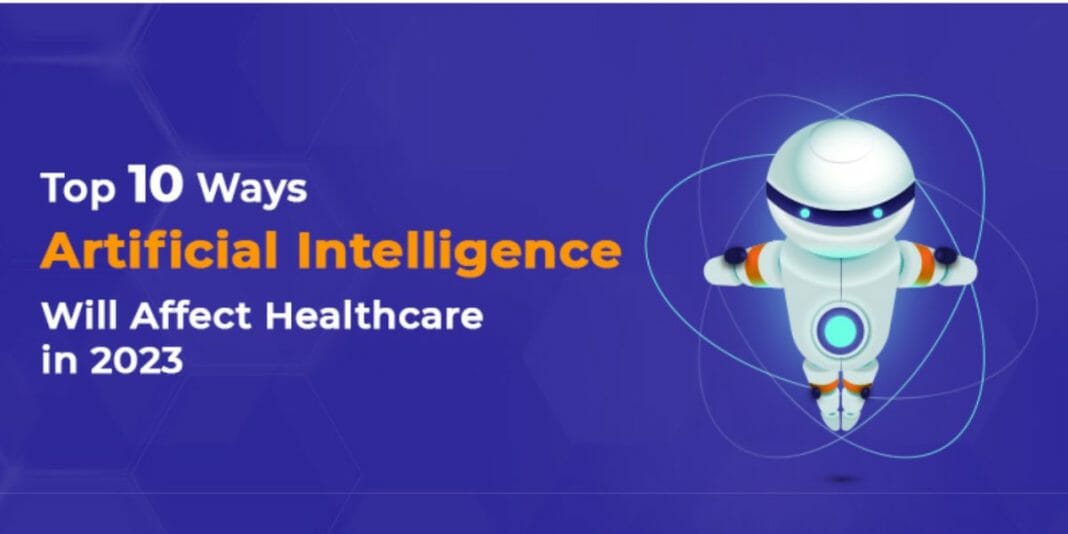There’s no doubt that medical science is the new obsession of scientists nowadays. The pace at which Medical Science is booming is phenomenal, and it is all possible because of the technology: basically because of Artificial Intelligence, AI has given a new dimension for evolving and making lives easier and hassle free! Several healthcare professionals nowadays are already taking an MBA in Artificial Intelligence to explore the advanced concepts in machine learning and decision tree algorithms that are useful in the field of medicine. If you are someone who is intrigued by the term Artificial Intelligence, then this Artificial Intelligence Course is especially for you!
Ok, now let us explore How Medical Science is blessed by Artificial Intelligence!
Artificial Intelligence has shaped the lives of patients, doctors, and hospital managers by simplifying their workloads and completing tasks in a fraction of time and expense.
It is known to all that the pandemic brought drastic changes in our lives and we all were directly or indirectly dependent on our medical technology and medical staff. Our modern healthcare system dealt with enormous challenges and yet tried their best to resolve the issue and come up with a plan. The good news was that at the time of need healthcare became more affordable, efficient, and equitable by leveraging AI to develop intelligent systems and workflows.
Artificial intelligence has always been a saviour, specifically in the field of healthcare, let’s look how.
- Observing patient behaviour has become simple
Monitoring how a patient reacts and behaves to a sign is crucial. This is where artificial intelligence helps by predicting and avoiding medical catastrophes with ease. Additionally imperative to postoperative care, behavioural monitoring boosts patient mobility and speeds up healing. These ambient technologies can be used to demonstrate how much the patient has moved during the day, encourage them to move more, and speed up their recovery.
- Drug Discovery
It takes a long time and money to get a medication approved from the laboratory and reach the patient. The journey a medicine makes from the research facility to the patient is nearly 10 years. Only one out of every five medications that start preliminary development eventually makes it to human testing and only five out of 5,000 drugs do. Recent uses of artificial intelligence in healthcare are drug discovery. By applying the most significant innovations in AI to speed up drug creation and drug repositioning processes, it may be possible to drastically reduce both the time and cost involved.
- Diagnosis Made Available at Fingertips
An AI system designed by Google’s DeepMind and the NHS can identify neck cancer and read eye tests. This suggests prompt patient discovery
So, in essence, AI can lessen the necessity for trips to the doctor or the hospital. There will be more trustworthy recommendations for treatment. It will essentially be healthcare at your fingertips.
- Enhance Medical Decisions
Predictive modelling can enhance medical decisions and interventions and help prioritise administrative activities. Enhancing treatment involves the integration of massive health data with suitable and timely judgments.
Another domain in which AI is starting to gain traction in healthcare is the use of pattern recognition to identify individuals who are at risk of contracting a condition or seeing one worsen owing to lifestyle, environmental, genomic, or other factors.
- Automating Support for Emergency Care
Only seriously ill patients are admitted to a hospital’s critical care unit. Hospital staff must take appropriate emergency action to maintain their survival if their health worsens. Using smart technologies like temperature sensing devices, moisture sensors, pulse pressure transducers, and many others, artificial intelligence developments in healthcare would automate emergency treatment support while allowing healthcare professionals to concentrate on more important issues.
- Encourage Individuals to keep good health with the help of apps
The capability to keep good health and reduce the need for medical care is one of AI’s most significant potential advantages.
Programs and applications for technology support the maintenance of a healthy lifestyle and encourage individuals to adopt healthier behaviours. It provides users command over their physical and mental wellness.
- Training
In a way that is not achievable with simple computer-driven algorithms, AI enables learners to connect in realistic simulations. The development of natural speech and the ability of AI computers to rapidly draw from a vast database of scenarios mean that a trainee’s response to questions, decisions, or suggestions can be challenging in a manner that a human cannot. Additionally, the training programme is capable of learning from the trainee’s prior responses, allowing for continuous adjustment of the challenges to meet their learning requirements.
- Assistance
AI can assist health care professionals in taking a more holistic approach to disease control, coordinate efforts as well as treatment plans, and help patients handle and cooperate with their long-term treatment programs, in addition to helping providers identify perennially sick individuals who are at risk of an adverse incident.
- Intervention of Robots
Over 30 years ago, robots were first employed in the medical field. They can do procedures alone or with the assistance of a human surgeon, and they can vary from basic laboratory robots to more complicated surgical robots. They are utilised for repetitive jobs, retraining, physiotherapy, and assistance of patients with long-term diseases in clinics and laboratories in combination with surgery.
- Reducing the waiting time of patients
It is well known that a hospital can only hire a certain quantity of physicians and nurses who really can perform patients’ medical examinations and diagnostic tests. Consequently, patients frequently have to queue outside of the doctor’s office when a hospital is particularly busy. However, the incorporation of ambient intelligence systems in medical facilities can automate patient first examinations, shortening their wait time.



